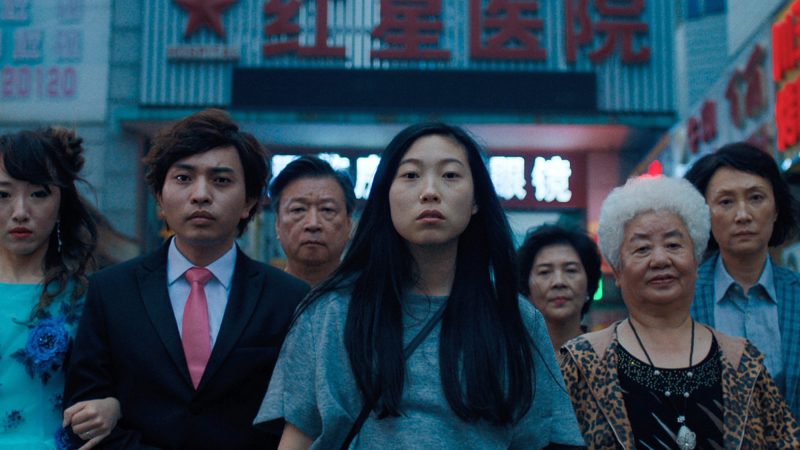This is the third piece in a series of three 2019 Sundance Film Festival coverage articles.
The Farewell
“The Farewell” is one of the films that generated significant buzz before Sundance, becoming entirely sold out extremely early on — and will be guaranteed to skyrocket Lulu Wang to newfound success. Featuring Awkwafina in a dramatic role, “The Farewell” is a 90-or-so-minute film whose every minute Wang crafts with such care and skill. The film, whose Chinese name translates approximately to “Don’t Tell Her,” Awkwafina’s protagonist Billie struggles over her family’s decision to not tell her grandmother that she’s dying of cancer. At a Q&A after the screening, Wang mentioned that when she pitched the film to Chinese producers, they were confused about the significance of the plot of the film. To them, the central conflict was not a conflict at all — merely a way of life. In this way, “The Farewell” proves itself to really be an American film as the story is told through the Asian American protagonist’s personal conflict.
A24 eagerly snatched up the film, which makes it a welcome addition to its lineup of films that usually feature white men, and it’s more likely to be seen by a bigger audience simply because of the A24 label. Yet, it still begs the question: where are the American films that are primarily in a foreign language? “The Farewell” sets a new precedent to take these films seriously as both box office and critical contenders (but why should they not?), and perhaps more importantly, encourage these films to be made and encourage producers to support filmmakers who are making these films. To an older white man in the audience who asked who this film is for, Wang curtly replied, “It’s an American film.” Props to her.
Hala
Minhal Baig’s (writer on “Bojack Horseman”) “Hala” is a coming-of-age film that turns the genre on its head for a number of reasons, including a number of unique narrative twists that ultimately exemplify the coming-of-age genre. In addition, rather than a white love interest, the titular character Hala’s main relationship interest becomes a fascinating, personal, and poignant relationship with her mother. I won’t say more than that for fear of spoiling the film, but it’s delightfully fresh and honest (emphasis on honest). Hala is especially important for people (and particularly people of color) who maybe can’t relate to coming-of-age films involving heavy partying, lax parents, and running completely amuck during high school years.
Hala is played by Geraldine Viswanathan (“Blockers”), who is one to watch. But beyond the central relationship, there’s a number of interracial relationships involving a white partner and a person of color. “Hala” interrogates these relationships and the supposed allure (but ultimate destruction). It’s not only a story of exploration for Hala, but Hala must guide and support her mother’s journey that she never planned in the first place.
“Hala” was picked up by Apple TV. Be sure to check it out soon — but I recommend in theaters on the big screen!
After the Wedding
Julianne Moore’s husband Bart Freundlich wrote and directed “After the Wedding,” which features Moore herself and Michelle Williams. Despite being based on a book, It’s a bit of a weird concept and doesn’t handle the idea of white saviorism and privilege particularly well. However, in terms of narrative, it’s expertly crafted, unrolling the drama step by step.
Moore carries the film, which is mostly built for soapy relationship drama. Perhaps it’s best to not read much about the film before watching because the core conflict is much more compelling if you let the film explore it from a blank slate, rather than understanding the relationships between the characters from the get-go. But once it starts going, it tumbles out of control and you never know who to side with.
Contact Olivia Popp at oliviapopp ‘at’ stanford.edu.
